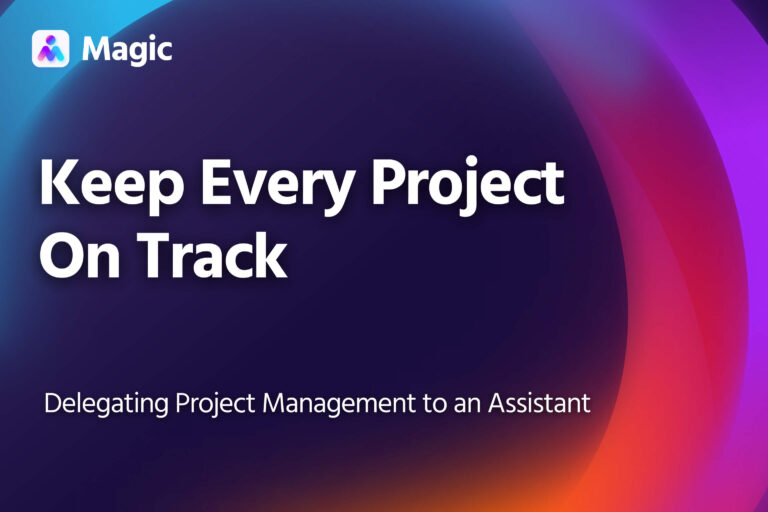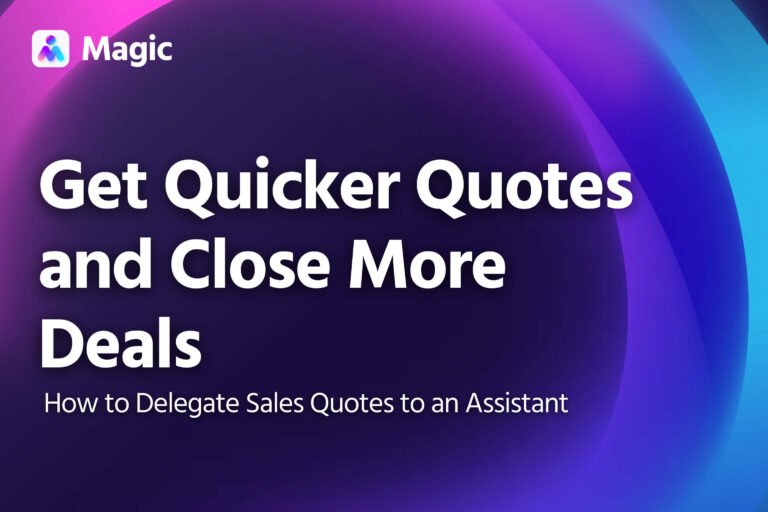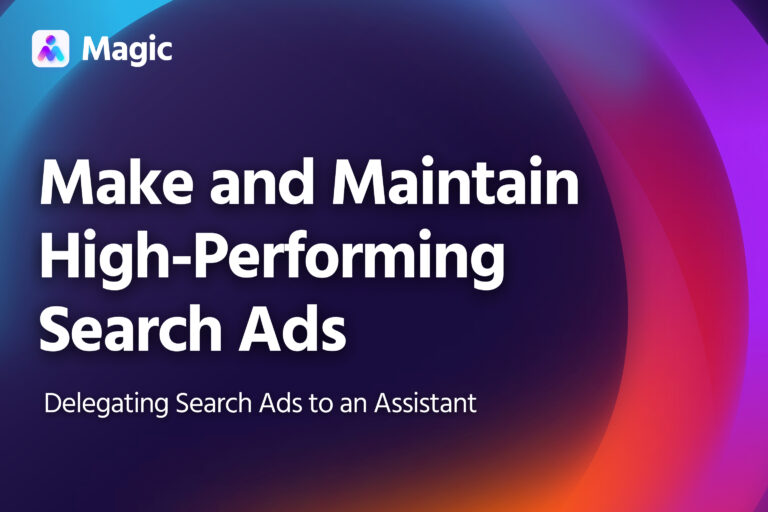An executive assistant (EA) can take hours of work off an executive’s hands while helping them get more out of the time they do spend working. However, finding a great EA can be a challenge.
Having a great EA depends on technical skills, communication, lateral thinking, and compatibility. Skills tests are one way to ensure that your EA is a good fit. Another strategy is asking the right executive assistant interview questions.
It’s important to ask questions that coax out relevant information about your EA candidate. Here, we’ve gathered EA interviewing tips and a list of interview questions for executive assistants.
- An executive assistant (EA) organizes their client’s schedule and correspondences while handling administrative and clerical tasks. A great EA can take hours of work off an executive’s hands.
- To effectively screen candidates for an executive assistant role, it’s important to ask questions that coax out relevant information.
- Before settling on a list of executive assistant interview questions, it’s important to understand your specific needs in an executive assistant. An EA’s role is to make a particular C-suite leader more effective.
What Do You Need Your Executive Assistant for?
Before settling on a list of executive assistant interview questions, it’s important to understand your specific needs in an executive assistant.
An EA’s role is to make their client more effective. Not only do EAs handle general admin tasks, but they also understand their executive’s work, habits, schedule, and duties to anticipate their needs.
Check out ways to improve your productivity as a CEO in this blog: Executive Assistant To The CEO: 9 Ways To Be Productive With Magic
Executive Assistant Responsibilities
The usual scope of an EA’s tasks includes day-to-day admin work, clerical duties, and liaising with any stakeholders their executive works with. Consider whether you’ll need an assistant to fulfill any other functions or if there are specific tasks they’ll need to focus on.
For example, an executive who travels often may need an assistant who’s exceptionally good at organizing transport and itineraries.
Skills and Other Qualifications
Similarly, you should determine what technical skills or qualifications you need in an EA. If, for instance, you’re in a particularly specialized field, you may need an EA with a basic grasp of industry concepts.
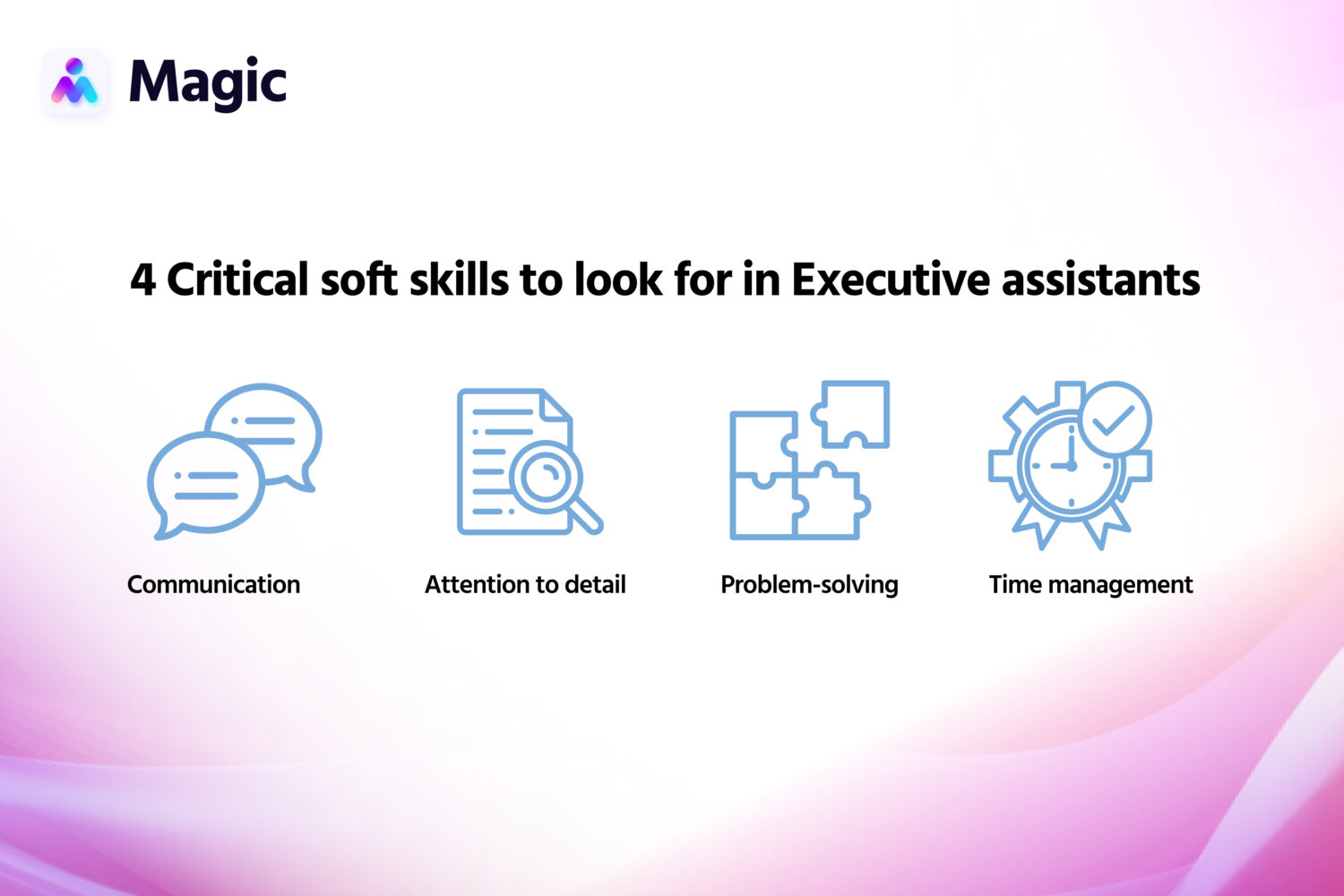
The Importance of a Culture Fit
It’s hard to overstate the importance of a cultural fit when choosing an EA. Culture, in this sense, is less about ideas than the specific practices that embody them.
- How many hours do employees in your company work per day? How many hours do you expect your EA to work?
- How do you want to communicate with your EA? What communication tools do you use?
- Do you have any processes that you want your EA to follow?
- How will you give feedback to your EA?
These will all shape the conditions in which your EA will operate. For them to excel at their job, they need to be on board with the way your business operates.
6 Types of Executive Assistant Interview Questions to Ask
The specific questions you’ll want to ask will vary from case to case. So, while we’ve included a few specific examples, we’ve approached this in groups instead.
Each group of interview questions for executive assistants targets a specific quality an EA candidate may have. From there, you can choose how exactly to refine your inquiries; use ones from this list or come up with your own.
Assessing Technical Competence
Much of your assessment of technical skills will come from skill tests or, possibly, a resume. Nonetheless, questions about technical ability can help you better understand how those skills apply to your company.
Technical questions focus on applying knowledge to particular scenarios or inquiring about prior work experience. They might cover the practical aspects of typical EA work or relate to your industry in particular.
Ask questions like these to find out how an applicant would approach technical problems:
- Have you supported an executive or team in the same industry in your prior jobs?
- How proficient are you with [software/tool/method]? How would you perform [task with specific objective] using it?
- In your resume, you said you handled [project/client]. What were your biggest challenges there? How did you handle them?
- Say you had to arrange a meeting with [specific requirements, guests]. How would you go about doing it?
What to Look for in an Answer: An EA with specific experience should be able to answer with specificity. This could be in the form of a detailed plan or, alternatively, clarifying questions that demonstrate insight.
Gauging Communication Skills
It’s easy enough to gauge general communication skills from the way an applicant talks to you, so interview questions about communication focus on more complex scenarios.
These could involve communicating under pressure or with multiple parties involved. It can also cover the exchange (or withholding) of confidential information.
- How do you handle conflict in the workplace?
- How do you respond if another executive asks for confidential information?
- How would you handle an angry client trying to reach your supervisor?
What to Look for in an Answer: While you can’t actually test how an EA will perform under pressure until a situation happens, a confident candidate is much less likely to get frazzled.
A good EA will respond with a plan that diffuses tension and diverts the problem people to the proper channels or authorities. Your applicant won’t know your specific processes, so look for answers that show confidence and correct de/escalation practices.
Evaluating Organizational Skills
Organizing schedules, inboxes, events, and itineraries is an EA’s bread and butter. As with communication, some of this comes through simply in how they interact with you.
Still, organizational interview questions for executive assistants can help you get into their heads, see how they think, and assess their organization and time management skills.
- Describe how you make travel arrangements. What information would you gather before and during the process?
- Tell me about your previous experience with managing a calendar or inbox. How do you prioritize messages and appointments?
- What’s an example of something you’ve done to improve processes?
What to Look for in an Answer: Organization is all about patterns and processes. A good answer will reflect a clear thought process and an ability to follow through. If their sense of how to prioritize tasks differs from yours, you can discuss these changes.
Probing Problem-Solving Abilities
The problems an EA faces are often about coordinating people, removing ambiguity, or finding agreeable compromises.
In these cases, there’s no better teacher than experience, so it’s worthwhile to ask about an applicant’s past problem-solving triumphs. Here are some interview questions to consider:
- Can you tell me about an assignment where you had to think outside of the box?
- What would you do if two people you support gave you conflicting directions?
- What was the most difficult challenge you encountered in your previous position? Discuss how you handled it.
What to Look for in an Answer: Pay attention to how an applicant identifies the primary problem in a given situation, as well as how they respond to them. A good EA is perceptive, able to see the big picture, and focus on solutions. Cleverness is good, but simplicity is even better.
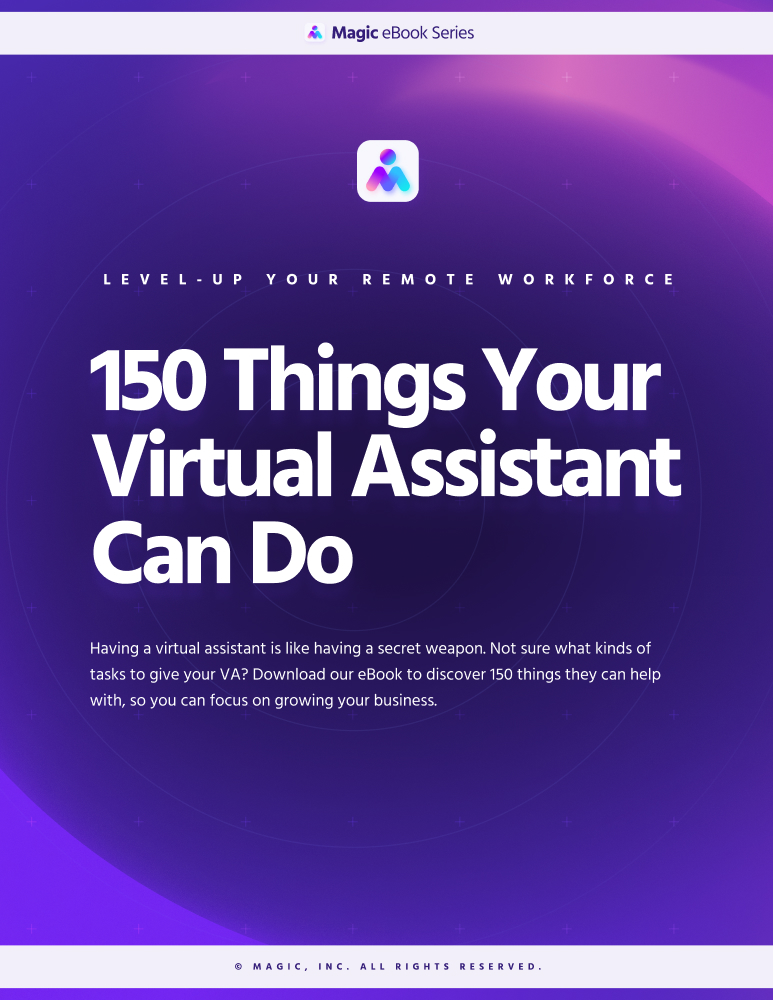
Not sure what tasks to give your virtual assistant? In this eBook, we share 150 tasks they can do for you so you can save hours a day.
Learn More
Understanding Adaptability
The executive assistant role requires a solid understanding of organization, communication, and discipline. But an EA also needs the flexibility to adapt to another person’s preferences and style of work. In many ways, adaptability is about their ability to intuit another person’s objectives, constraints, and other preferences.
- How do you go about anticipating the needs of an executive?
- What do you do when working with less information than you need?
What to Look for in an Answer: A good answer might reveal something about how the candidate observes and analyzes people. This is useful for working with the executive and working with stakeholders and counterparties.
While adaptability means adapting to someone else’s way of doing things, it also relies on autonomy and initiative. A good EA doesn’t just sit still and wait for instructions.
Assessing Goal Alignment and Culture Fit
It takes time for an EA to get accustomed to an executive’s way of doing things. Since this is an investment of time and effort on both sides, it’s good to have someone who’s truly interested in the role.
Use these interview questions for executive assistants to see if their goal-setting is in line with your plans.
- Where does this job fit in your career objectives?
- What are your boundaries in terms of working outside office hours?
- Tell me about the best boss you’ve had. What made you think highly of them?
What to Look for in an Answer: Ideally, you should find a candidate who’s interested in keeping the position for the mid- or long-term. Beyond that, these questions can judge compatibility.
Ask the Right Questions, Get the Right EA
Finding the right EA can take time since it’s a role that places a lot of emphasis on both skills and personal compatibility, but once you find that perfect hire, expect a long, fruitful relationship that will make you more efficient and save you time.
Magic can help you hire an executive assistant that meets all your needs. Simply tell us what you need, and we’ll use our multi-step screening process to find you a candidate in no more than a week. Save time on searching and get right to interviewing!
To get started, schedule a call with us today.






